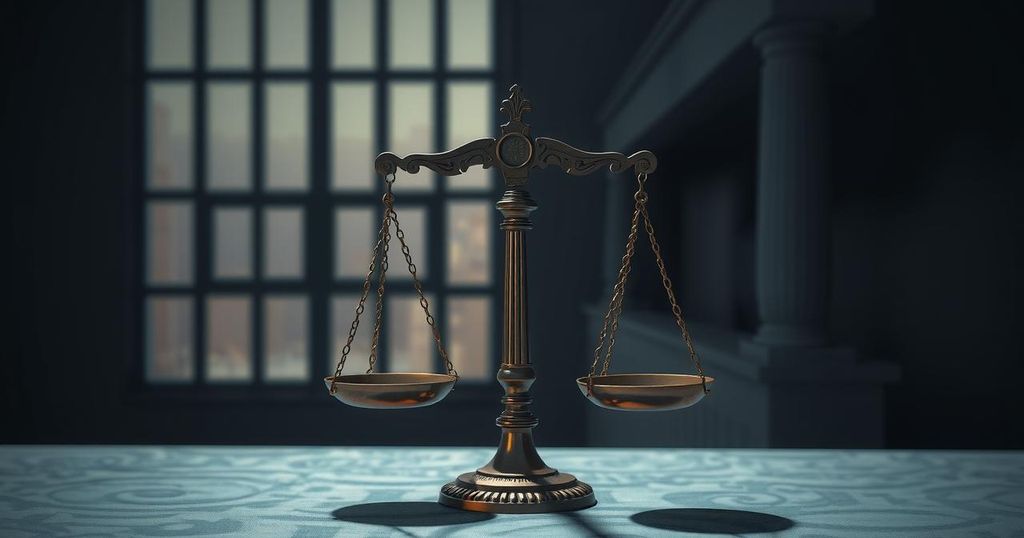Iran’s judiciary sentenced political prisoner Manouchehr Fallah to death for “enmity against God” amid significant criticisms regarding due process. Arrested in 2023, he was previously sentenced to 15 months for insulting the Supreme Leader. The international community is urged to intervene and advocate for the rights of political prisoners in Iran.
On February 2, 2025, the Iranian judicial system sentenced political prisoner Manouchehr Fallah to death. This verdict was delivered by Judge Mohammad Ali Darvish Goftar at the Revolutionary Court in Rasht, where Fallah was convicted of “enmity against God (Moharebeh)” for alleged actions threatening the regime’s security. He is currently incarcerated in Lakan Prison in Rasht and was not permitted legal representation during his trial proceedings.
Manouchehr Fallah, aged 40, faced trial via videoconference on December 11, 2024, accused of damaging properties associated with the IRGC Intelligence and the Gilan Judiciary. The trial has been widely criticized for failing to uphold due process rights, particularly the absence of a defense attorney, raising concerns about the fairness of the judicial process.
Initially arrested on July 1, 2023, at Rasht Airport, Fallah had been sentenced to 15 months for insulting Iran’s Supreme Leader Ali Khamenei and for spreading propaganda against the regime. Though he completed this sentence, authorities initiated further legal proceedings against him while he was still imprisoned, ultimately culminating in a death sentence.
The Iranian Resistance has urged international bodies, including the United Nations and the European Union, to advocate for the annulment of Fallah’s death sentence and to seek the release of all political prisoners in Iran. They emphasize the need for human rights organizations to elevate pressure on the Iranian authorities to cease executions and uphold fundamental human rights.
Fallah’s case exemplifies the Iranian regime’s continued repression of political dissent, underscoring severe human rights violations. There is an urgent call for global intervention to mitigate these injustices and promote accountability within the Iranian judicial system.
The case of Manouchehr Fallah reflects the broader context of human rights violations in Iran, particularly concerning political dissent. The Iranian judicial system has frequently been criticized for lacking transparency and due process, particularly regarding political prisoners. Fallah’s situation embodies the challenges faced by those opposing the regime, revealing the risks associated with dissent in a repressive political environment.
In conclusion, the sentence handed down to Manouchehr Fallah serves as a disturbing reminder of the Iranian regime’s ongoing human rights abuses against political prisoners. The call to action from international bodies highlights the pressing need for global awareness and intervention to address these injustices. As the situation develops, it is crucial that the international community remains vigilant and active in demanding change within Iran’s judicial practices.
Original Source: irannewsupdate.com




